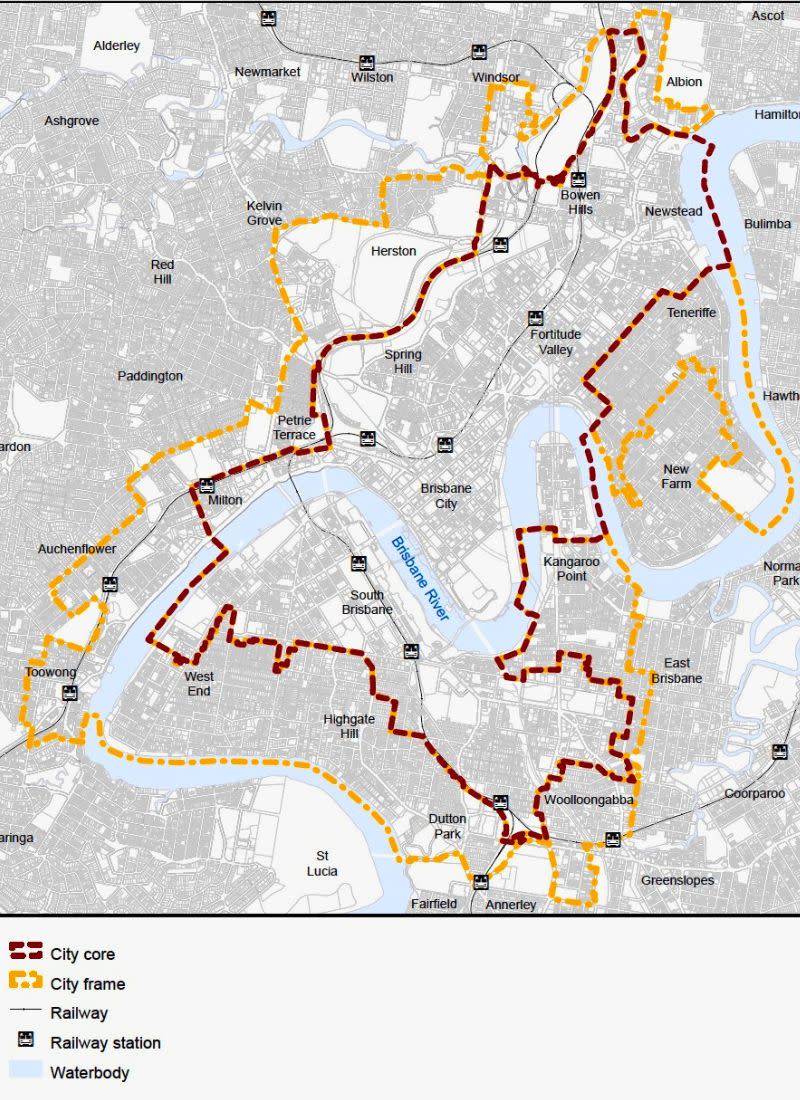Brisbane Softens Parking Rules for New Apartments

Carparking spaces for new builds are back on the chopping block as Brisbane City Council moves to cut mandates and boost housing supply.
The Inner-City Affordability Initiative, introduced last year, will now include 15 more suburbs.
While the move would cut construction costs and spur apartment development in key growth areas, experts warned deeper reforms were needed to remove barriers “preventing capital flowing” into Queensland.
The council argued mandatory parking spaces added significant costs to new projects, with underground and podium-level carparks costing up to $100,000 a space.
By reducing these requirements in suburbs it grouped into a “City Core” and a “City Frame”, the council hoped to make apartment projects more viable while keeping housing prices down.
Initially applied to Brisbane’s CBD and the Kurilpa Sustainable Growth Precinct, the policy was expanded to Fortitude Valley, Kangaroo Point, Milton and Newstead.
Following a consultation process, which received 90 submissions, the latest expansion will include East Brisbane, Herston, Highgate Hill, Red Hill, Toowong, West End and Woolloongabba.
These areas were selected for their strong public transport links, including Brisbane Metro, the future Cross River Rail and active travel infrastructure.
Lord Mayor Adrian Schrinner said reducing parking mandates were a necessary step in addressing the housing crisis.
“Brisbane is one of Australia’s fastest-growing capital cities and we’re doing what we can to help deliver more homes sooner and relieve cost pressures,” he said.
“Our city’s growth is adding to housing supply pressures which are being exacerbated by labour shortages, construction costs and a significant increase in migration.
“It was clear when we consulted the community that car ownership in inner-city areas is reducing, and current parking requirements were adding huge costs to the construction of new apartment buildings.”
Under the proposed changes, developments in the City Core and Kurilpa Sustainable Growth Precinct would have reduced parking requirements, allowing a maximum of 0.5 car spaces per one-bedroom home, one space per two-bedroom, 1.5 spaces per three-bedroom and two spaces per four-bedroom and larger homes.
One visitor space would be required for every 20 homes.
In the City Frame, a minimum of 0.9 car spaces per one-bedroom home, 1.1 spaces per two-bedroom, 1.3 spaces per three-bedroom and larger homes and 0.15 visitor spaces a home would be required.
Parking minimums outside these areas would remain unchanged.

From 2019 to 2023, the council approved 57,000 homes but said only half had been built.
Schrinner said cutting parking mandates was one way council could help make development more viable.
“Kickstarting the construction of affordable homes is the right thing to do with the limited levers our council has to help solve the housing crisis,” he said.
The state’s Property Council of Australia executive director Jess Caire welcomed the initiative, saying it directly tackled one of the biggest challenges for developers—cost.
“Independent research commissioned by the Property Council last year revealed that the cost of providing carparking has been estimated to add an additional $100,000 to the cost of an apartment for at-grade carparks or potentially more for basement carparks,” she said.
“Additionally, the changes are sensible policy and facilitate a higher uptake of public transport in areas that are well serviced, which in turn eases congestion in the inner city.”
But while the move was a positive step, Claire said it wasn’t enough on its own.
“While these changes are a good start to boost housing supply and are welcome, given the scale of the housing crisis, every lever must be pulled,” she said.
“The Property Council is currently working with all levels of government on stimulating private investment in Queensland so we can respond to our many and varied growth challenges, including shortfalls in housing, infrastructure, industrial space and office buildings.”
She called on the Queensland Government to review foreign investment tax settings, saying they were discouraging much-needed capital.
“Currently, the way these settings are applied penalises local developers who leverage a portion of foreign capital for local projects,” she said.
“If we want to accommodate Queensland’s growth, we need to stimulate private sector investment by removing any barriers preventing capital from flowing into our state.”
The council voted in favour of the changes at its meeting on February 4. They will now seek State approval for formal adoption into Brisbane’s City Plan.















